On Tuesday, April 19, Transport Minister Khaw Boon Wan took to his blog with delight, proclaiming that the North-South MRT line has gone 100 days free from "any major incident":
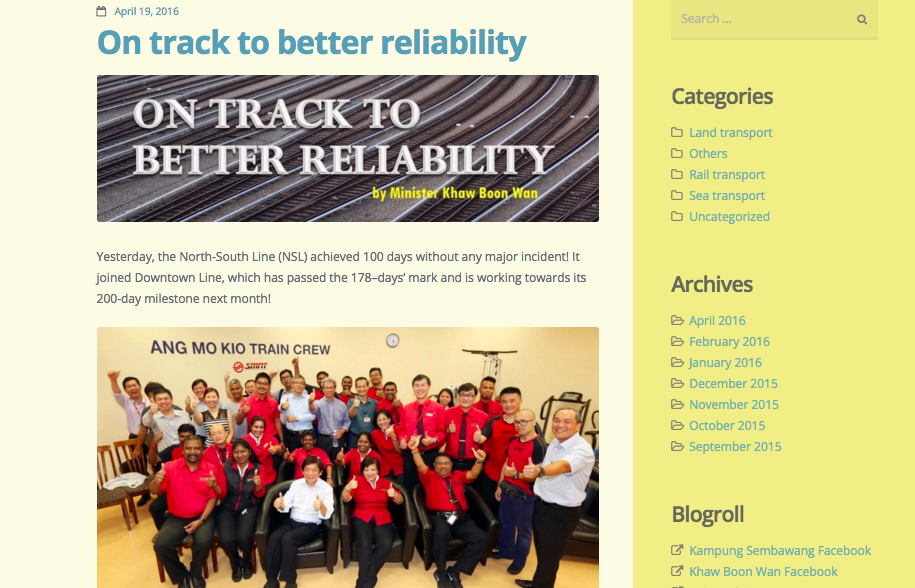 Screenshot from MOT blog
Screenshot from MOT blog
Yet, we saw this happen on Thursday morning, bright and early:
[NSL]: No train service from MarinaSouthPier to Newton towards JurongEast due to a train fault. Free regular bus available at affected areas
— SMRT Corporation (@SMRT_Singapore) 20 April 2016
And this:
[NSL]: No train service from #Raffles Place towards MarinaSouthPier due to a train fault. Estimated resumption time, 0645hrs. — SMRT Corporation (@SMRT_Singapore) 20 April 2016
Which all sounds slightly sad, considering they came immediately after this:
100 days milestone achieved along the North-South Line (NSL): https://t.co/8QxFuM7GJT #SMRT #NSL pic.twitter.com/oZen57BaYv
— SMRT Corporation (@SMRT_Singapore) 19 April 2016
Now, there is a man named Dayan who started a website called FAILRAIL, which tracks train service delays and disruptions in a nifty timeline you can drag and see incident by incident, categorised by train line, duration and severity of each.
It's already been updated with Thursday morning's disruption:
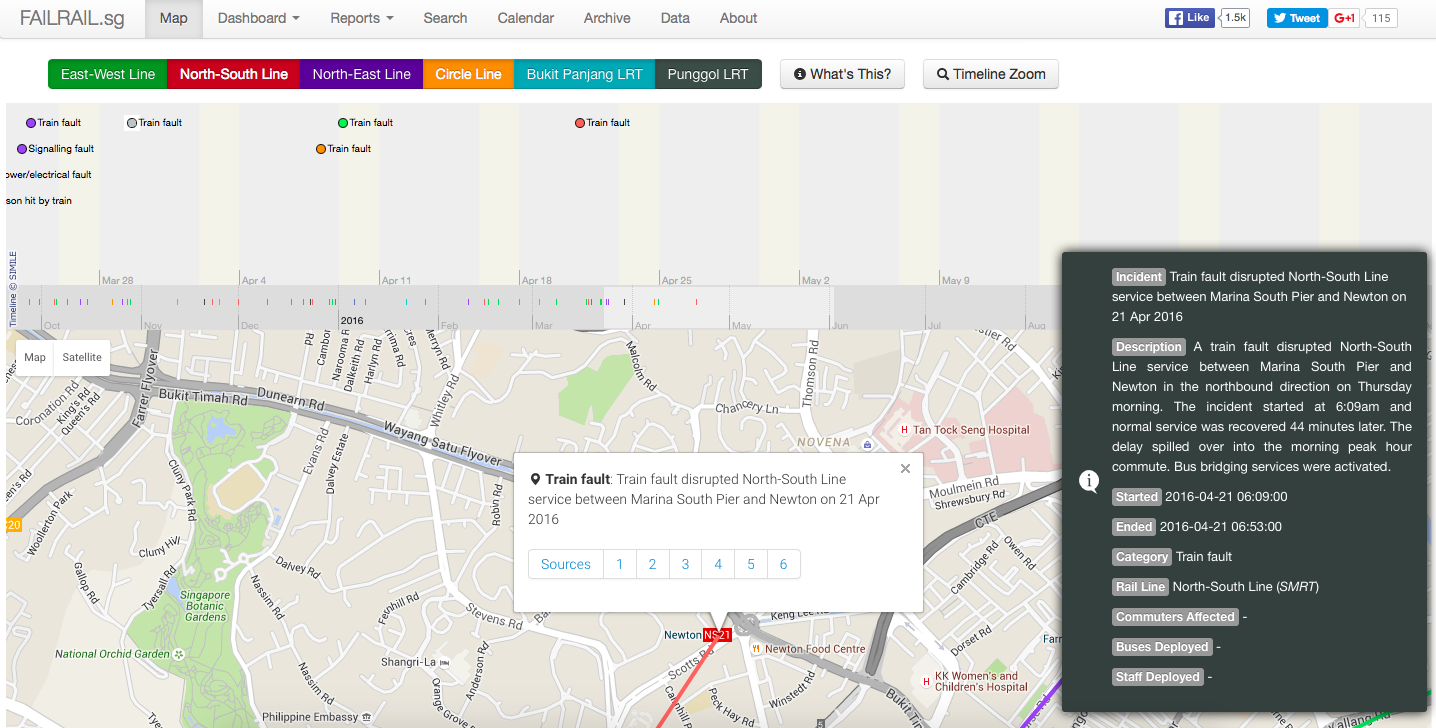 Screenshot from Failrailsg.appspot.com
Screenshot from Failrailsg.appspot.com
He wrote to us on Tuesday evening pointing out a couple of recent North-South Line incidents that took place during the 100-day "major incident-free" period, like:
1) March 18, 2016 — Delay at Bishan MRT station
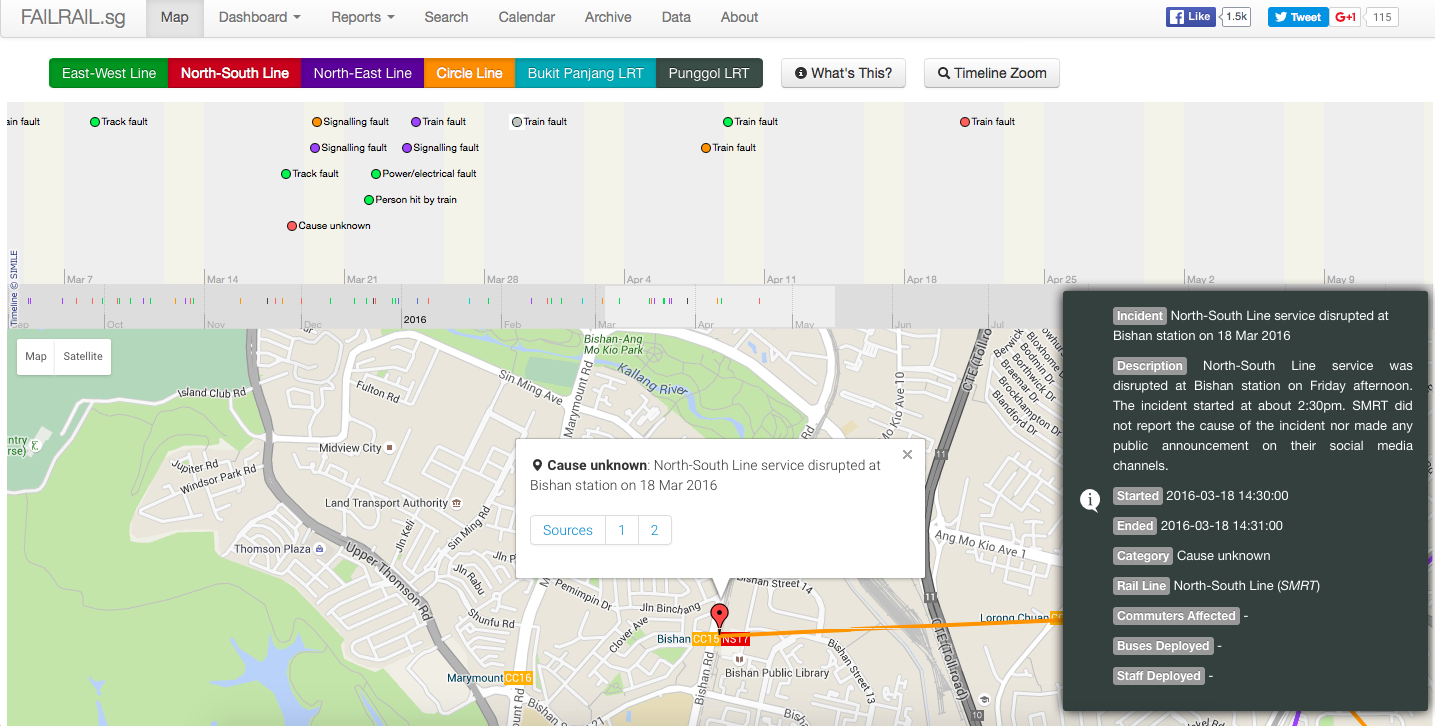 Screenshot from failrailsg.appspot.com
Screenshot from failrailsg.appspot.com
That afternoon, trains stalled for about 10 minutes between Ang Mo Kio and Bishan MRT stations, but this delay wasn't reported by SMRT on its Twitter or Facebook pages.
2) February 15, 2016 — Train fault near Dhoby Ghaut station
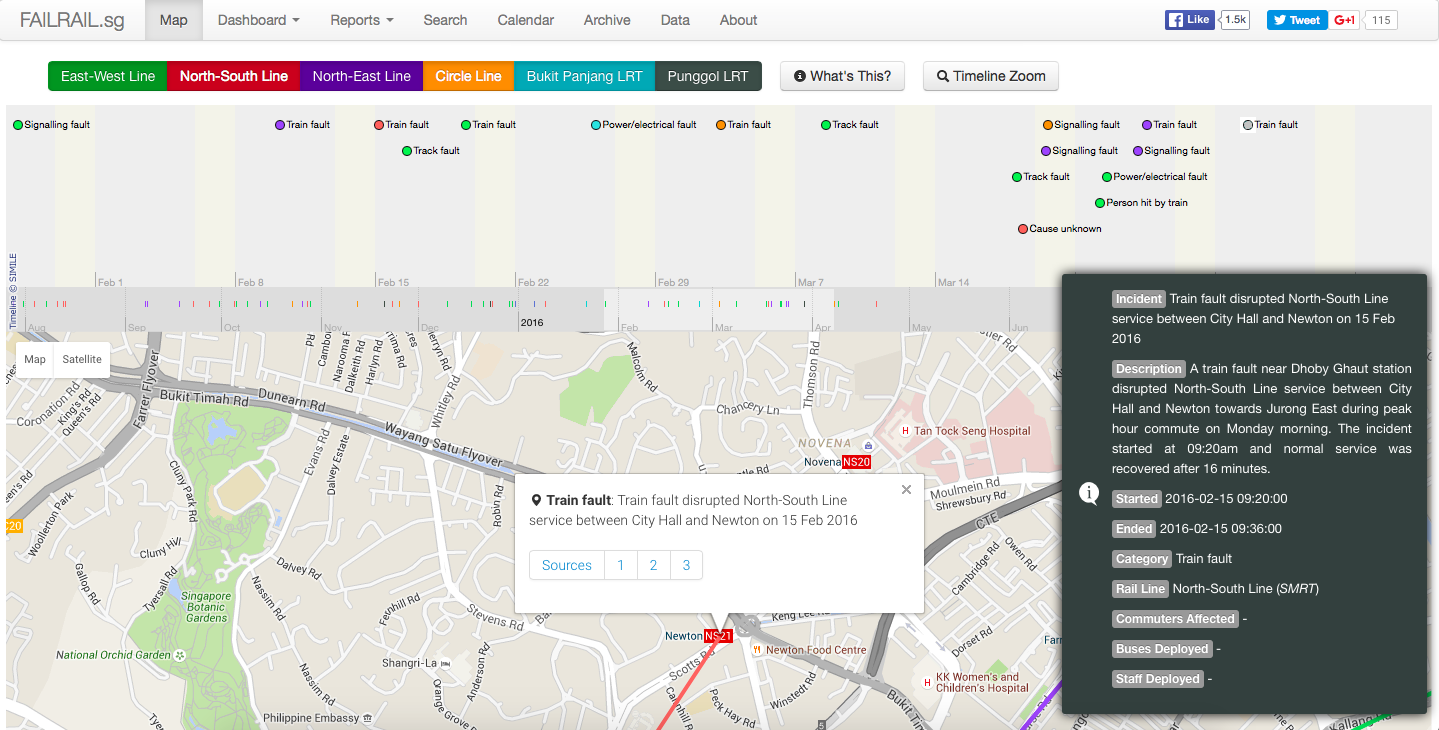 Screenshot from failrailsg.appspot.com
Screenshot from failrailsg.appspot.com
In this incident, a train fault near Dhoby Ghaut station halted service between City Hall and Newton stations in the direction of Jurong East at 9:20am. Things went back to normal after 16 minutes.
So if these two things happened, how did the North-South Line still hit its 100-day "disruption-free" milestone?
By defining the term "disruption" to mean delays or service stalling for more than 30 minutes:
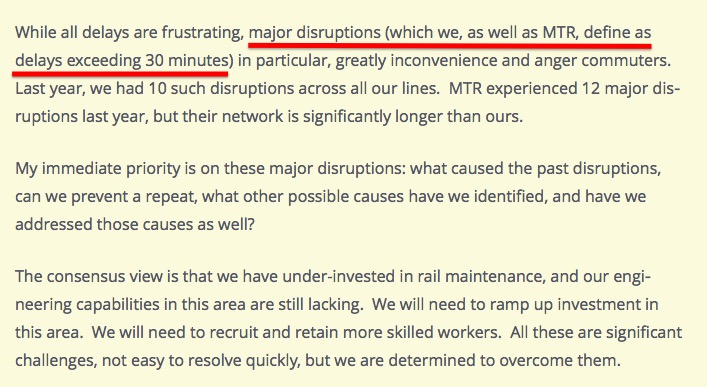 Screenshot from Minister Khaw's blog. Click to access the full article.
Screenshot from Minister Khaw's blog. Click to access the full article.
He also spoke about this in his recent Committee of Supply speech in Parliament:
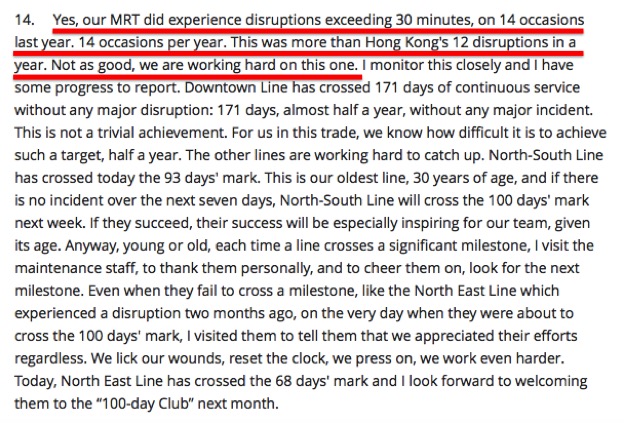 Screenshot from Khaw's COS speech. Click to read the whole thing.
Screenshot from Khaw's COS speech. Click to read the whole thing.
And in case you think they disregard anything that happens below that, they measure it using the friendlier-looking "mean kilometre before failure" indicator. Last year, Khaw mentioned that Singapore's trains travelled an average of 133,000 kilometres before a delay of at least five minutes occurred:
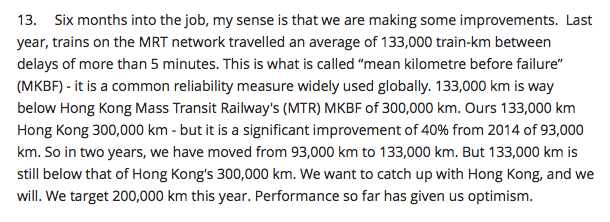 Screenshot from Khaw's COS speech.
Screenshot from Khaw's COS speech.
But as he acknowledged, it's still less than half Hong Kong's 300,000km — and Hong Kong's MTR system is much older and much larger than ours:
So yes, that's why we have indeed gone 100 days without "major incident(s)" = disruption = delay for more than 30 minutes.
That said, on what would have been its 102nd day without major incidents, one happened on Thursday morning which started at 6:09am and ended at 6:53am, which we can with certainty call a "disruption".
Now you know.
Top photo: Minister Khaw Boon Wan's blog.
If you like what you read, follow us on Facebook and Twitter to get the latest updates.
If you like what you read, follow us on Facebook, Instagram, Twitter and Telegram to get the latest updates.
